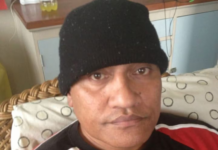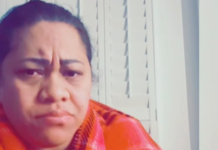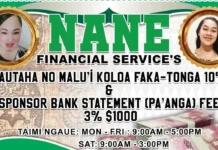Tongans in Auckland have rallied round in an effort to counter the increasing struggles experienced by Māngalo patients in the community.

Māngalo is the Tongan translation for dementia.
Experts estimated that 500 patients in the Pacific community including Tongans are currently being diagnosed with Māngalo.
Participants were grouped and given various questions to answer about their experiences with Māngalo during a four-hour workshop in Ōtāhuhu last week. It was followed by each group leader presenting the answers from the front to the whole gathering.
There were calls for more health professionals on Māngalo and for the Tongan language to be compulsorily used when providing advice, and educating people about the disease, starting from homes.
The workshop was told there were also needs for a government funded separate service to specifically address Māngalo for the community.
One of the group leaders told the meeting that providing dementia patients with identification cards could be a good idea to help if they encountered difficulties.
As an example, the leader said the cards could be shown to Police or wardens if people with dementia were found to have breached traffic rules.

















He said he was once fined for not buckling up and the police officer ignored his plea that he had dementia because he could not provide any proof that he in fact had the disease.
“I am suggesting this because I was ticketed after getting into my car and immediately drove off forgetting to wear my seatbelt and a police car pulled me over”, he said in Tongan.
Another woman said she often forgot her destination while driving as a result of her Māngalo.
Dr Sione Vaka, an Associate Professor and clinician for Pacific Dementia, told the attendants although there was no cure for Māngalo, having a good diet and keeping a healthy lifestyle could help ease the effects of the disease.
“A 15-minute workout each day really help”, Makoni Havea, a Nurse Practitioner in the Child and Adolescent Mental Health Service, told the meeting.
She said patients should pay particular attention to their heart health as heart contributed to Māngalo if it was not well looked after.
The workshop was organised by the ‘Ākiheuho, a Tongan health provider in Auckland and assisted by other Tongan clinicians including Dr Etuini Ma’u, Dr Staverton Kautoke, Dr Alo Fokiaki, project manager Tevita Vungamoeahi and practitioner Makoni Havea.
‘Ākiheuho Chief Executive Makahokovalu Pailate previously said that early intervention was the key. “Our research shows that in many Pacific families, people with dementia are often formally diagnosed when there’s very little we can do to slow the disease.
“If people are diagnosed in the early stages, they’re still aware of what’s happening and can take part in exercises that help slow the progression of dementia—which is a much better outcome for our families.”
‘Ākiheuho Communication Officer Kitekei’aho Tu’akalau said the gathering was the first of four government-funded workshops planned for this year. The workshops would run for four years.
Māngalo or Dementia
Māngalo is a complex condition that can be both heartbreaking and bewildering. It is not one specific disease, but an umbrella term that is used to describe approximately 100 different illnesses.
This debilitating condition affects a person’s ability to think, reason, and remember. It is a progressive condition that slowly and steadily worsens over time and can have a profound impact on a person’s daily life, as well as the lives of their family.
According to the ‘Ākiheuho website there are about 70,000 dementia patients in New Zealand from the Pākeha community. The number of people affected by the disease could triple by 2050.
For more information
‘Ākiheuho







